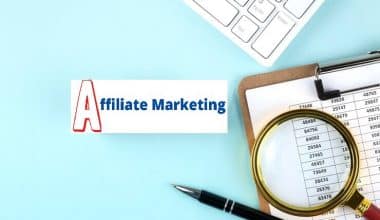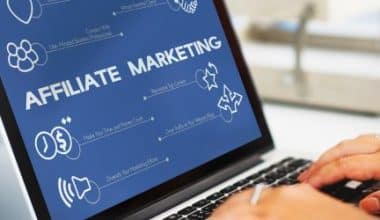Automation is no longer considered a luxury. It is the foundation of any lean and effective department. However, marketing – the frontline of every business — may benefit the most from marketing automation technology.
If you want to brush up on marketing automation or automate your marketing department, keep reading to learn about the best digital marketing automation software available. We got a crash course in the intricacies of this set of tools before comparing some of the best software.
What is Marketing Automation Software?
Marketing automation (MA) software is a digital sophisticated platform that assists marketers in acquiring new consumers, increasing marketing efficiency, and analyzing lead behavior and campaign efficacy. This software collects leads, assists in lead generation, builds relationships with individuals and groups of customers, and pushes prospects through the sales funnel and the customer journey. Marketing automation technology is now a crucial resource for B2C and B2B marketing and sales departments trying to build their business without the assistance of a marketing agency.
What are the Many Types of Marketing Automation Software?
- Email marketing automation
- SMS marketing automation
- Social media marketing automation
- Direct mail marketing automation
- Predictive marketing automation
- Automation of audience segmentation
- Lead capture marketing automation.
- Split testing marketing automation
- eCommerce marketing automation
- B2B marketing automation
- Public sector marketing automation
What is the Best Marketing Automation Software?
Here are some crucial factors to consider when evaluating digital marketing automation software programs to determine which one is best for you:
#1. Utilization Ease
Automation isn’t easy to implement as it is, so make sure the software’s interface works with you rather than against you. Look for screenshots of the user interface to see if it appears basic and easy to use.
#2. Reporting and Analytics
You’ll want to be able to track the success of any drip campaigns you’re conducting, so your automation software should track the metrics that are most important to you.
In B2B and enterprise contexts with several stakeholders, additional reporting capabilities such as customised dashboards or automatic reporting via email may be required.
#3. Support
“I wonder if my software is capable of…”
One day, when you research the benefits of marketing automation, you will come to this conclusion. Automation can be technical, so seek for providers with extensive knowledge bases, tutorials, and other forms of client assistance.
#4. Limitations
Some automation software platforms may restrict the amount of activities you may perform in a month or the size of your database.
Before beginning any evaluation, determine how many contacts you have, how many emails you send on average, and what you want the software to do. This will keep you from grossly underestimating the expense of your automation software.
#5. Scalability and pricing
If the benefit of automation can be summed up in one sentence, it is this: it will make you more efficient, allowing you to focus on the jobs that you enjoy and have the best return. With that in mind, you’ll want to weigh pricing alongside capabilities.
A scaled-down system may be sufficient for SMBs and B2C enterprises relying only on email. However, for more complex requirements, enterprise (and consequently higher-priced) software is more cost-effective in the long run.
Choose a service who is not only economically priced but can also grow with you as your demands alter. After all, eliminating bloated activities is crucial to properly scaling.
#6. Integrations
How well does marketing automation software integrate with your current stack? Integrations enable you to manage data and get additional value from your tools.
We’ve compiled a list to assist you in sorting through your alternatives and feeling confident in selecting the finest marketing solution for you and your team.
We share our best marketing automation tools options (in no particular order).
Best Marketing Automation Software
#1. Maropost
Maropost is a comprehensive marketing automation software aimed for B2C companies. It gives established marketing teams all of the tools they need to succeed, such as email marketing, SMS and push alerts, mobile and social marketing, and website optimization. These channels enable B2C marketers to keep their audiences engaged at all times and in all places by delivering personalized messages that are tailored to their behavior, interests, and preferences.
#2. Emfluence Marketing Platform
Emfluence is a marketing automation technology that understands your needs. We provide marketers with simple software that includes the tools they need to run effective campaigns. Our all-in-one platform focuses on convenience and functionality, allowing you to launch email campaigns, SMS campaigns, analytic reports, tests, and more without the hassle. Combine this with an ultra-responsive development team ready to design nearly anything, and you can be assured that your marketing initiatives are in capable hands.
#3. Blueshift
Blueshift is an AI-powered cross-channel marketing solution that enables brands to create relevant and integrated experiences across customer engagements. This technology enables marketing teams to communicate with customers via a variety of channels, including emails, websites, and mobile applications. Blueshift’s predictive segmentation solutions enable professionals to segment consumers based on content interactions, channel engagement, behaviors, user traits, and geo-location.
#4. Omnisend
Omnisend is an email and SMS marketing automation software designed specifically for small ecommerce retailers looking to increase sales and conversions. It provides simple tools that help merchants convert visitors into loyal customers. Drag-and-drop email and promotional form builders, segmentation, A/B testing, reporting, pre-built automation processes, and much more are available.
#5. iContact
iContact is a Web-based email marketing solution for companies of all sizes. This system offers your business email design, list management, campaign management, and social media publishing all in one package. iContact offers a variety of customisable email templates to assist you in creating content for your email campaigns.
#6. Web.com
Web.com is an easy-to-use website builder that provides what you need at a price that is tailored to your budget. There are no hidden costs, commercials, or aggressive sales tactics, just high-quality resources to help you get started. Whether you’re an aspiring small business owner or simply seeking to bring your concept to the web for the first time, our drag-and-drop editing experience makes it simple to design your website and customize it to match your individual requirements.
#7. Freshmarketer
Freshmarketer is a full-service marketing automation platform designed for fast-paced marketing teams. It enables you to engage your users intelligently throughout their lifecycle, from pre-acquisition to post-acquisition. Freshmarketer is used by marketers to manage lifecycle campaigns, create nurturing workflows, evaluate user activity, personalize at scale, and more.
#8. Mailchimp
Mailchimp provides marketing automation and email marketing services and is ideal for organizations who want an all-in-one platform that supports the essential components of internet marketing without requiring sophisticated technical knowledge. One of Mailchimp’s main selling points is its simplicity. Mailchimp does not require sophisticated technical experience or coding talents to develop excellent marketing campaigns, and its features are nicely organized and simple to understand.
#9. User.com
User.com is an all-in-one marketing automation solution that aims to increase engagement and conversion. Use detailed user information from visitor tracking details stored in a CRM. Create and manage campaigns using automated procedures based on visitor data points or preset actions. Convert visitors into users with email campaigns: once they’re customers, it’s simple to stay in touch with them with omnichannel communications.
#10. ActiveCampaign
ActiveCampaign’s category-defining customer experience automation platform (CXA) enables businesses to engage with their consumers in meaningful ways. The platform provides access to 500+ pre-built automations that combine email marketing, marketing automation, and CRM for effective segmentation and personalisation across social, email, messaging, chat, and text for organizations of all sizes. Microsoft, Shopify, Square, Facebook, and Salesforce are among the 850+ connectors available through ActiveCampaign.
The Benefits and ROI of Marketing Automation Software
#1. Reduced operating expenses
Automation takes repetitive manual chores out of human hands and places them in the hands of computers, allowing you to get more done without employing additional people. Computers perform triggered activities effectively; they can send a predefined email in response to a form fill, notify a team member of a change in lead status, or schedule social media updates. While your team will still need to plan ahead of time to set up automations, you’ll save time (and concentration) because you won’t have to do marketing activities individually as they emerge. This increased efficiency can help you save money on running expenses.
#2. More information
The utility of Big Data as a business tool drives companies to seek out more data to better understand their customers, channels, operations, and finances. Marketing automation solutions generate precise, customer-specific data that can assist your teams in segmenting clients, developing better nurture campaigns, and closing more sales. All of this new data may be evaluated directly in the MA system or pushed into BI software to see how it affects the overall ROI of the organization.
#3. Reporting and analytics
The best MA software provides analytics and reporting tools for tracking and illuminating your campaigns. Using these tools can assist your marketing team in creating more personalized and targeted campaigns. While BI software collects data from across the organization, marketing automation analytics focuses on marketing and sales campaigns, providing superior insights and positioning your company for success.
#4. Centralized marketing tool
It’s the ultimate dream: a single marketing platform to rule them all! MA software, which centralizes control over email, content marketing, contact forms and downloads, social media, and even direct mail and traditional media channels, can come close to realizing this dream. This is determined by the scope and cost of the marketing platform software, so carefully review feature lists before purchasing to ensure you don’t pay for items you won’t utilize.
#5. Increased ROI
Return on investment is calculated as a percentage by dividing your net profit by the starting cost of your investment and multiplying the result by 100. If your profit was $1,000 and your initial investment was $200, your ROI would be 500%.
The cost of your investment should include the software subscription charge as well as the cost of training and installation. MA software should boost the efficiency of your team, bring in more qualified leads, and target the appropriate consumers at the right time. These enhancements should boost your overall revenue.
Is a Digital Marketing Automation Software Necessary?
Most firms today purchase a marketing automation product without first considering whether they truly require it. Marketing automation, as the latest buzzword, may appear to be a simple step toward scaling your marketing organization—but you must first have a proper marketing operation.
Adding digital marketing automation platforms before you’re ready is as bad as not having them at all.
According to our experience, organizations aren’t ready for marketing automation unless they check at least three of the following boxes:
#1. You have at least one person on your marketing team who just conducts marketing.
Digital marketing automation can help you streamline and expand your operations, but it is not a replacement for marketing expertise. If you’re a founder or early employee who is doing a variety of tasks, including marketing, and believe that an “automation” technology will free up your time, you’re mistaken.
#2. You’ve discovered at least one effective marketing channel.
Marketing automation solutions can help you grow your marketing, but you don’t want to scale something that isn’t working yet. If you assume marketing automation solutions will help you locate a profitable channel, you’re mistaken.
#3. All of your marketing efforts are guided by a clear plan.
You don’t need an automation tool to toss more spaghetti at the wall in the hopes that something sticks.
#4. Your marketing team is strapped for cash but short on time.
Marketing automation allows your team to accomplish more in less time—but you must be happy with the financial trade-off that allows you to do so. You can simply automate monotonous operations and save time by using automation technologies.
#5. You have begun a growth marketing strategy.
Growth marketing methods must be planned for at each stage of the funnel. You don’t want to sign up for a new tool unless you know how it will help your business.
When all of those scenarios apply to your business, you can start thinking about digital marketing automation tools.
Is marketing Automation the Same as CRM?
Software for marketing automation and customer relationship management (CRM) have various uses. The primary distinction between CRM software and marketing automation software is that the former is largely used for sales activities while the latter is mostly utilized for marketing.
Which Automation Tool Is in Demand 2023?
Web-based automation using Selenium
A popular open-source web automation tool is Selenium, which can automate several operating systems, including Windows, Mac OS X, and Linux, as well as multiple browsers, including Firefox, Chrome, Internet Explorer, and Headless Browsers. Scripts for Selenium tests are compatible with the following programming languages.
What Is the Most Common Use of Marketing Automation?
Email marketing, behavioral targeting, lead prioritizing, and tailored advertising are examples of typical marketing automation operations. Teams can collaborate more effectively, deliver more individualized, pertinent material to prospects and customers, and save time by automating these tasks.
What is the future of marketing automation?
A report claims that by 2023, spending on marketing automation technologies will grow exponentially to $25.1 billion annually. According to the same report, 75% of marketing specialists already employ at least one form of marketing automation tool in their approach.
What Is the Latest Trend in Marketing Automation?
The most important marketing automation trends for 2023 involve the use of AI, ML, and data analytics to boost campaign effectiveness, internal workflows, and productivity, as well as consumer engagement, repeat business, and revenues.
Is Marketing Automation in Demand?
Because of advancements in technology and an increase in the usage of the internet for business purposes, there is a growing need for marketing automation software. The emergence of social media marketing and the quick uptake of digitalization is also expected to stimulate industry expansion.
In conclusion
What we’ve discussed thus far is merely a portion of the important features you’ll encounter when using these platforms. What’s above should be represented in some way in whatever tool you use. However, how those features are implemented is just as essential as if they are available. Clicking the Free Evaluation option is basically a need for determining what’s best for you. As is discussing future plans with your sales representative. You can certainly construct whatever unique features your campaigns want by using third-party software and the APIs that most of these tools have. However, finding what you need as part of your core marketing platform is easier and likely less expensive.
None of the tools we tested were ineffective. In fact, each of them will give you more power than your typical email marketing platform. (kbeautypharm) Some provide additional customer data and boost the likelihood of closing transactions, while others are more expensive and allow you to personalize your workflows to meet your individual needs.
Automation Marketing Software FAQs
Is CRM a marketing automation software?
CRM software and marketing automation software perform distinct functions. The primary distinction between CRM software and marketing automation software is that CRM software is largely used for sales, whilst marketing automation is mostly utilized for marketing.
What is CRM automation?
CRM automation is a means of streamlining procedures and increasing productivity by automating important but repetitive manual tasks in customer relationship management.
What is B2B marketing automatio
B2B marketing automation platforms are defined by Gartner as software that facilitates lead generation, lead management, lead scoring, and lead nurturing activities across different marketing channels.
Related Articles
- Best 15 Marketing Software For Small Businesses In 2023
- Benefits of Accounting Process Automation for Business
- 6 Tips To Do Business Task Automation Right
- Marketing Automation: Best Marketing Automation Software and Tool
- CAMPAIGN MANAGEMENT TOOLS: Free Tools and Application






